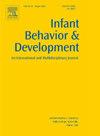早产儿早期神经运动和感觉发育:一项18个月的纵向随访研究
IF 2
3区 心理学
Q3 PSYCHOLOGY, DEVELOPMENTAL
引用次数: 0
摘要
早产儿面临神经发育挑战的风险增加,包括运动技能缺陷、语言迟缓和认知障碍。早期评估神经运动和感觉发育对于识别发育迟缓和实施及时干预至关重要。本研究的目的是评估18个月矫正期早产儿的神经运动和感觉发育,并分析这段时间内发育轨迹的变化。在这项前瞻性纵向研究中,使用神经、感觉、运动、发育评估(NSMDA)对176名早产儿(妊娠37周前出生)在矫正年龄1、4、8、12和18个月时进行评估。随着时间的推移,NSMDA分数显示出明显的改善,第一次和最后一次评估之间的涨幅最大。许多一开始有严重困难的婴儿取得了重大进展,其中一些在18个月时达到了正常的发育范围。此外,在整个研究过程中,很大一部分最初发育正常的婴儿继续这样做。该研究强调了在矫正年龄的前18个月内早产儿神经运动和感觉发育的潜力。定期的早期评估和有针对性的干预措施对于支持这一弱势群体的最佳发展结果至关重要。本文章由计算机程序翻译,如有差异,请以英文原文为准。
Early neuromotor and sensory development in premature infants: An 18-month longitudinal follow-up study
Premature infants are at increased risk for neurodevelopmental challenges, including motor skill deficits, language delays, and cognitive impairments. Early assessment of neuromotor and sensory development is crucial for identifying developmental delays and implementing timely interventions. The aim of this study was to evaluate neuromotor and sensory development in premature infants over an 18-month corrected age period and to analyze changes in developmental trajectories during this time. In this prospective longitudinal study, 176 premature infants (born before 37 weeks gestation) were assessed at 1, 4, 8, 12, and 18 months of corrected age using the Neurological, Sensory, Motor, Developmental Assessment (NSMDA). The NSMDA scores showed clear improvement over time, with the biggest gains seen between the first and last assessments. Many infants who started with severe difficulties made significant progress, with some reaching a normal developmental range by 18 months. Additionally, a large portion of infants who were initially developing typically continued to do so throughout the study. The study underscores the potential for significant neuromotor and sensory development in premature infants within the first 18 months of corrected age. Regular early assessments and targeted interventions are essential to support optimal developmental outcomes in this vulnerable population.
求助全文
通过发布文献求助,成功后即可免费获取论文全文。
去求助
来源期刊

Infant Behavior & Development
PSYCHOLOGY, DEVELOPMENTAL-
CiteScore
4.10
自引率
4.80%
发文量
94
期刊介绍:
Infant Behavior & Development publishes empirical (fundamental and clinical), theoretical, methodological and review papers. Brief reports dealing with behavioral development during infancy (up to 3 years) will also be considered. Papers of an inter- and multidisciplinary nature, for example neuroscience, non-linear dynamics and modelling approaches, are particularly encouraged. Areas covered by the journal include cognitive development, emotional development, perception, perception-action coupling, motor development and socialisation.
 求助内容:
求助内容: 应助结果提醒方式:
应助结果提醒方式:


